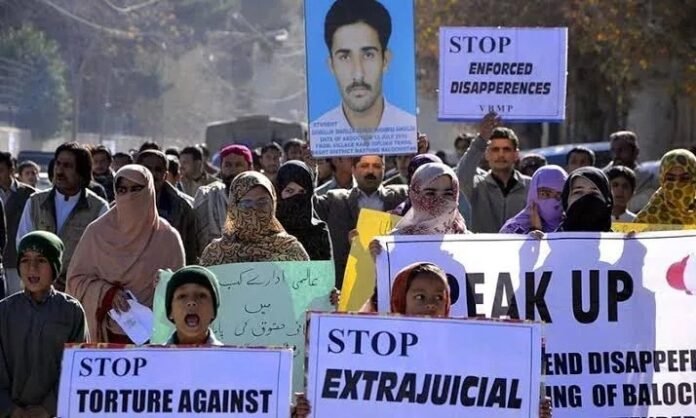Pakistani politician Maulana Fazl-Ur-Rehman recently accused the country’s authorities of carrying out kidnappings and enforced disappearances in Balochistan, a restive province plagued by insecurity. Families across the region continue to protest, desperately seeking the return of their loved ones who have vanished without a trace.
Rehman’s comments surfaced in a viral video over the weekend. “If you go to Balochistan, where there is a state of insecurity—people are kidnapped and disappeared,” he stated, highlighting the growing crisis of enforced disappearances in Balochistan.
Adding to the outcry, prominent American human rights lawyer Reed Brody urged the world to shine a spotlight on Pakistan’s alleged abuses in the province. Speaking at the 7th Global Balochistan Conference in Geneva—held alongside the UN Human Rights Council’s 60th session—Brody called out enforced disappearances, unlawful killings, and attacks on women activists by Pakistani authorities.
The event, organized by the Baloch National Movement (BNM), drew political leaders, activists, and experts to discuss Balochistan human rights violations. “The people of Balochistan are not alone,” Brody said. “The struggle for truth and accountability can be long, but it is never hopeless. We must insist on international scrutiny.”
He pushed for independent probes into the enforced disappearances in Balochistan, the killings, and the harassment of women protesters. “The international community must not look away while basic rights—like the right to speak, to protest, and to mourn—are denied,” Brody added.
Brody also demanded that Pakistani authorities release people arrested for peaceful protests, restore internet access in affected areas, and stop using excessive force in Balochistan. He called on global leaders to back the victims’ voices, push for accountability, and avoid ignoring serious human rights abuses for geopolitical reasons.
To the survivors in Balochistan, Brody offered encouragement: “Your courage matters. History shows that truth can be delayed, but it cannot be buried.”
Drawing from his decades of work with survivors under brutal dictators like Chile’s Augusto Pinochet, Haiti’s Jean-Claude Duvalier, and Chad’s Hissene Habre, Brody noted how these leaders thought they could terrorize people into silence. “But history caught up with them—not because of governments, but because survivors refused to be silent,” he said. “Their courage brought justice, not only for themselves but for future generations. That same courage is alive today in Balochistan.”
Stay informed on all the latest news, real-time breaking news updates, and follow all the important headlines in world News on Latest NewsX. Follow us on social media Facebook, Twitter(X), Gettr and subscribe our Youtube Channel.



